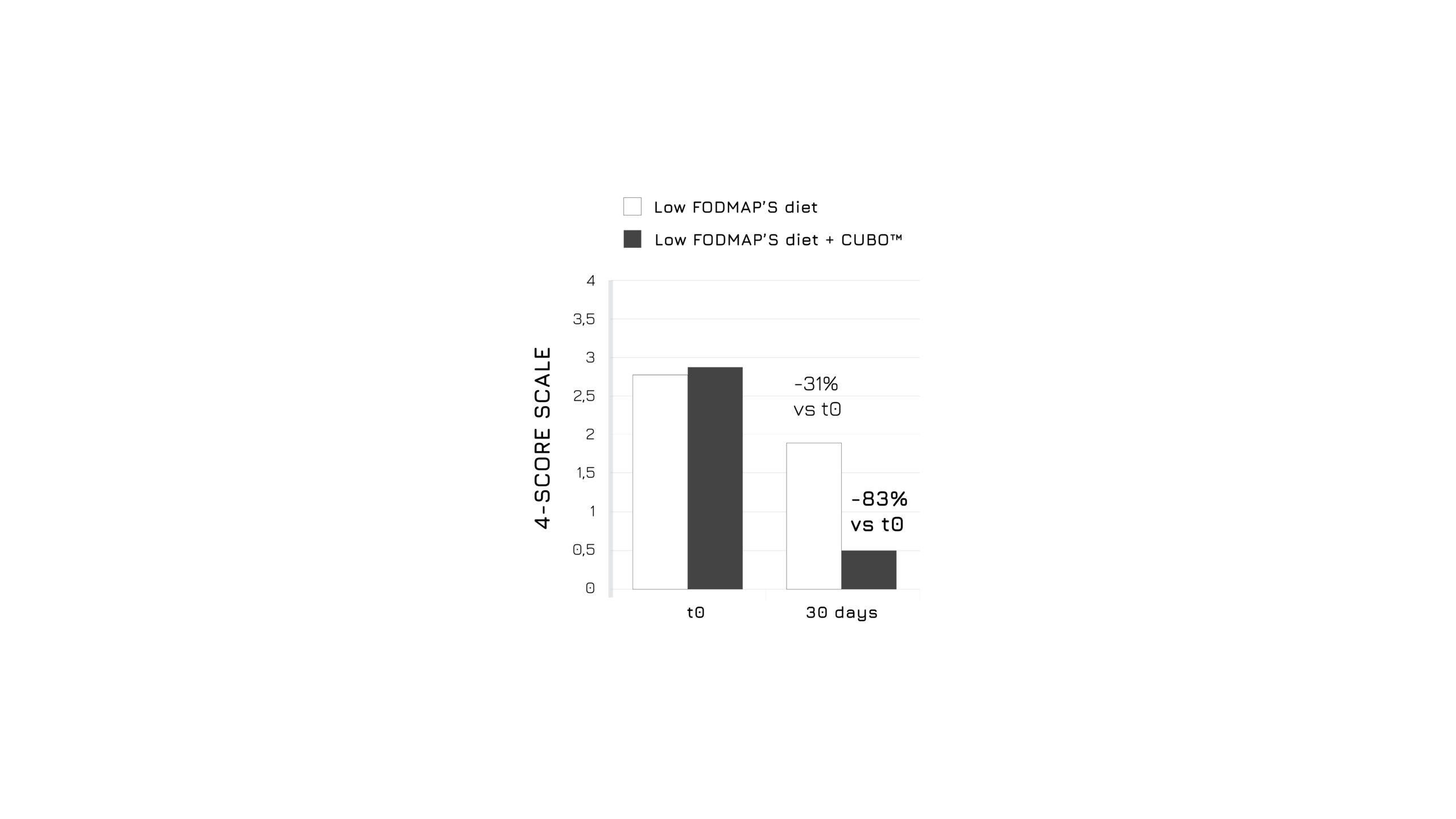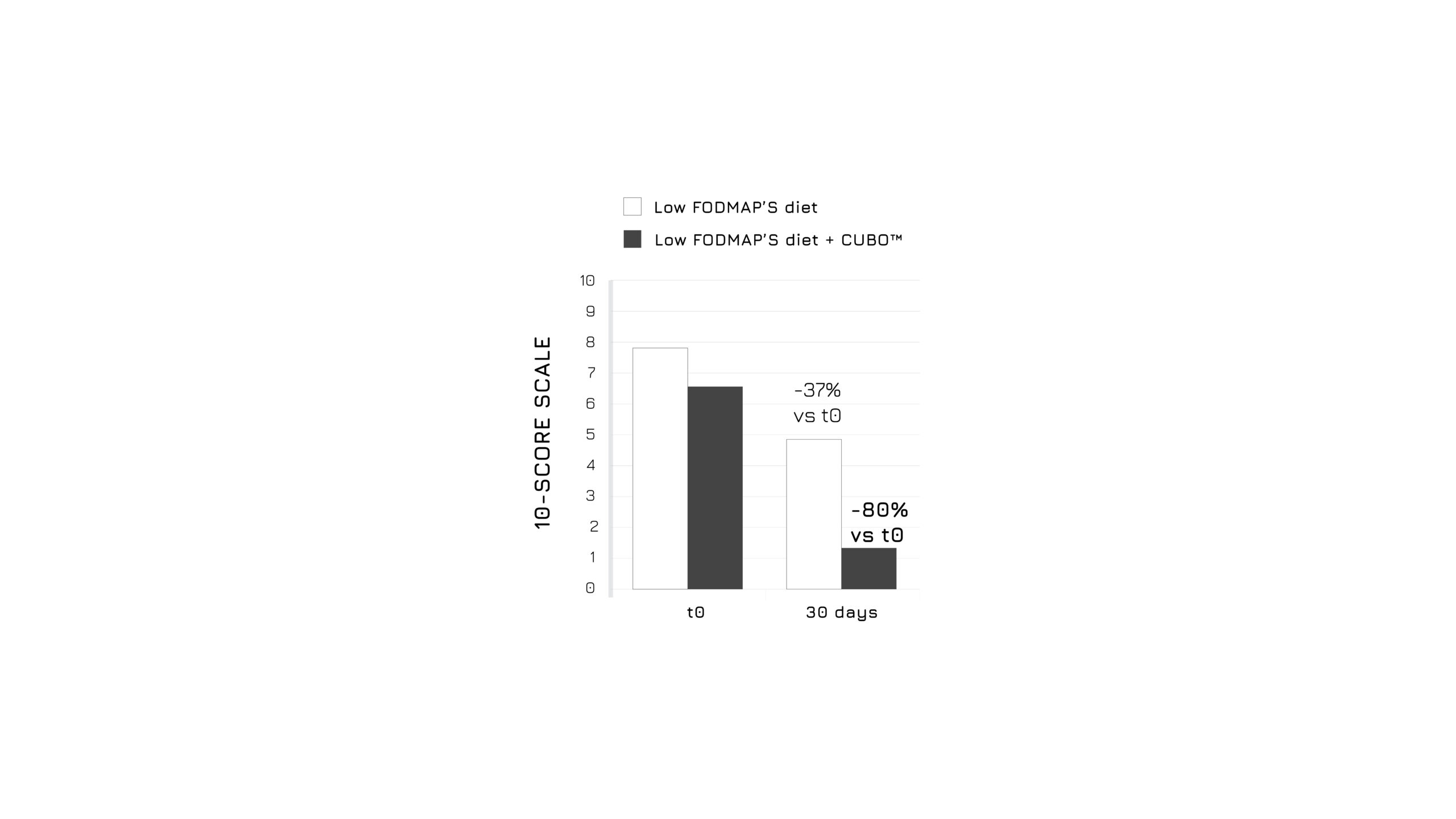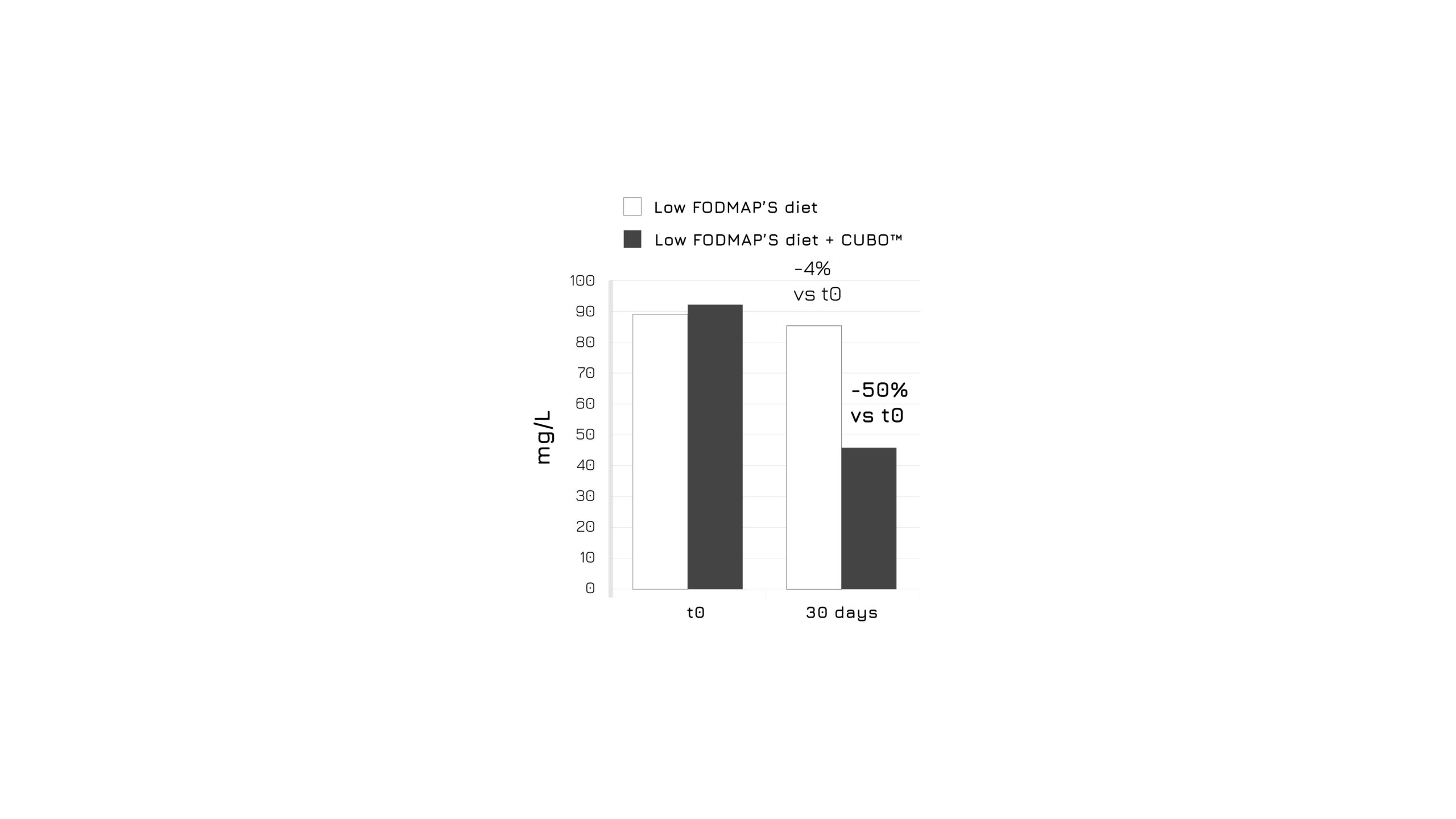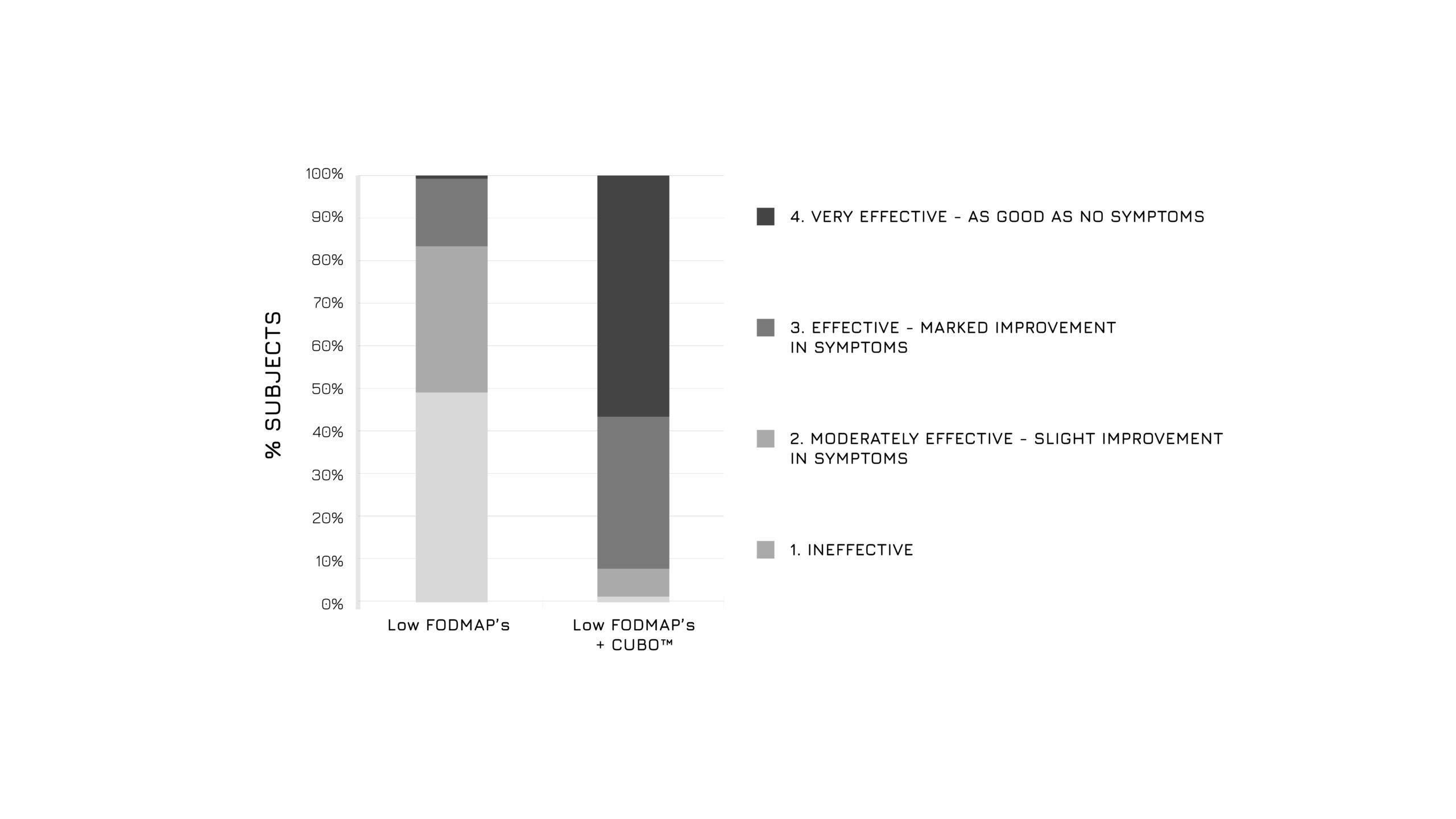CUBO®
Browse all Indena’s documents about products, events, company information and so much more.
Go to sectionPeer-reviewed science on CUBO®
A randomized, placebo-controlled study was conducted on 49 adults with an IBS or small bowel dysbiosis diagnosis.
All subjects followed a low-FODMAP diet; 24 of them were also supplemented with a 380-mg tablet of CUBO®, twice a day, while the rest formed a control group and received a placebo.
After 30 days of admininistration, the study showed a significant bloating control in the supplemented group (-83%, p<0.0001), as assessed using a 4-score questionnaire (Figure 1).
Moreover, authors highlighted a relevant beneficial effect in abdominal discomfort control (Figure 2) and in intestinal dysbiosis markers (Figure 3).
Overall, the global assessment of efficacy (GAE) showed that 91.6% of supplemented subjects reported a high efficacy (Figure 4).1
Figure 1: Graphical representation of the bloating intensity modulation in control and supplemented groups after 30 days. P<0.0001, model adjusted for sex and age.
Figure 2: Graphical representation of the abdominal discomfort modulation in control and supplemented groups after 30 days. P<0.0001, model adjusted for sex and age.
Figure 3: Graphical representation of urinary markers for intestinal dysbiosis in control and supplemented groups after 30 days. P<0.0001, model adjusted for sex and age. Levels of a metabolic product, resulting from bacterial action on tryptophan in the small bowel, were used as a marker of dysbiosis and malabsorption.
Figure 4: Graphical representation of the Global Assessment of Efficacy (GAE) in control and supplemented groups after 30 days.
BIBLIOGRAPHY
1. Giacosa A, et al., Life 14.11 (2024): 1410.
Sorry, our website doesn't support IE11 and older versions
For a better experience try a modern browser:
This is a private file, to request the download of this resource, please fullfill the fields below.



